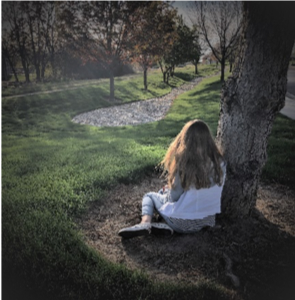 “No one understands.”
“No one understands.”
You’re right, they don’t. And they probably won’t. Not because they don’t want to, but because they can’t. Not completely anyway.
Suffering is a lonely business. Whether walking through the aftermath of suicide or murder, reeling from the betrayal of domestic violence or sexual assault, or grieving the loss of a loved one, suffering almost always results in the anguished feeling that no one understands.
Life can be difficult, and it will present us with any variety of challenges, including death, divorce, infertility, financial struggle, and numerous others. Injury at the hands of another person, however, is a special kind of wound. It is one that pierces the heart, wounds the soul, and leaves us feeling profoundly alone. To add insult to injury, those close to us sometimes say exactly the wrong thing, make comments and assumptions that stomp on sacred ground, and expect us to reach benchmarks of forgiveness and “moving-on” according to a timeline that makes sense to them and has nothing to do with the reality of our own grieving and recovery. This can feel profoundly isolating, particularly when we have allowed ourselves to be vulnerable enough to reach out, only to have the wound deepened by misperception, and poor understanding.
Support groups are often a safe space to find connection and mitigate the tremendous loneliness in suffering. But even here we might find that the connection is incomplete. We all experience the world through a very particular lens. This lens is created by the family we grew up in, our beliefs and values, past experiences, and previous relationships. All of these factors come together to create the unique lens through which we view the world. This also determines our unique response to suffering, trauma, betrayal, and loss. No two people will experience the same event in exactly the same way. For example, parents who experience the traumatic death of their child will have unique perceptions of the event, and often very different coping mechanisms. This can exacerbate one another’s pain and leave them both feeling even more alone.
Religious leaders and even therapists, although inspired and well-trained, can also sometimes cause a secondary wound by making comments or offering advise that is not the most healing for you. This does not mean that we should not reach out for support in order to avoid making ourselves vulnerable to added pain. Suffering and healing, however, is largely a solitary experience; one which requires a period of turning our attention inward, noticing what our bodies are telling us, giving full attention to what our deepest knowing reveals. There are volumes of self-help materials available. Many offer wisdom and good advice. Therapists, spiritual leaders, and loved ones might provide us with some insight that resonates as truth for us. But not everything that is offered will be helpful. This is why we must trust ourselves.
At the end of the day, our healing will be as unique as our suffering. It is made up of equal parts struggle and surrender. Our unique prescription must rise up out of our own personal dark night of the soul. Be still, and listen to what your highest-self whispers. We must not adopt answers that our soul tries to reject. Healing springs from our most sacred knowingness. A seed will not sprout before it is ready. Preparation for growth and new life is momentarily dark, solitary, and cannot be rushed. But given patience and fertile ground, the seedling will eventually push its head above ground and reach for the light. If we allow love, self-compassion, and acceptance to germinate–our suffering too will eventually push a little tendril out of the darkness. And if we reach toward the light, it will ultimately fill our brokenness and overtake the darkness.

By Helen Thueson-Stone, M.A., TFT-Dx

Helen Thueson-Stone has over 25 years of experience in crisis intervention, trauma recovery, teaching, professional training and speaking. She is the owner and Director of Stone Mountain Wellness Center & Training Institute in Boise, Idaho.
*For more information about using tapping to treat trauma, anxiety, and addictions, e-mail the author at [email protected]
*Watch for our next article, “Transforming Suffering into Wisdom and Strength” coming in July.
*Join us for our upcoming retreat Overcome Anxiety and Take Control of Your Life to learn how to stop suffering and direct your attention toward healing and purposeful living.

